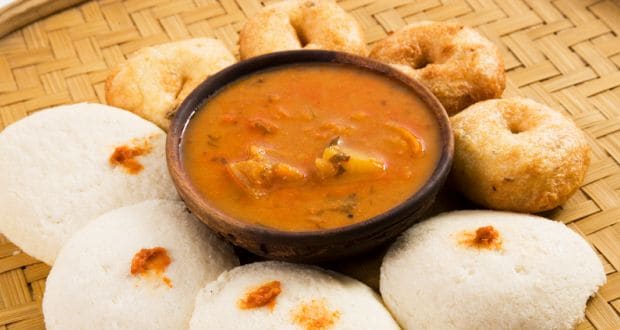As a nutritionist, I know that all-natural foods are nutritious and are fortified with health-promoting properties. As part of a food community, I have seen various fusion and experimental foods being discovered and trended for their own special reasons, including their ability to promote weight loss, manage cholesterol levels, or boost immunity. And, some got popular only because they were visually attractive and pleased people walking into the restaurants and cafes. In today's fast-paced life, we seldom have time for ourselves; COVID and the months-long pandemic brought back our focus on keeping our health in check. I meet a lot of people on a daily basis - some regular clients and others in gatherings - constantly asking about healthy foods for combating stress and keeping their overall health in check. Meaning, there is a positive shift to some extent towards health-seeking behaviours.
As the New Year 2023 approaches, I see an interesting mix of food trends picking up - some old and some new, but definitely healthy and delicious.
What Foods Will Be Popular In 2023? Here's The Whole List
1. Plant Proteins
Proteins play an important role in our daily diet. We need 0.8-1gm/day. Plant proteins are protein-rich foods (of course plant-based) such as quinoa, tofu, soy, legumes, nuts and seeds. The trend of choosing plant proteins over meat is fast becoming popular. From plant protein burgers to meat-free alternatives are taking over in many restaurants and cafes now, and believe me, if reports from the leading food apps are to be believed, the demand will only increase in 2023. Vegetarianism and vegan diets are fast catching up and the food and restaurant industries have understood this and are coming up with more meat substitutes.
Nutritional Benefits: Plant proteins are rich in nutrients like fibre, phytonutrients, and vitamins and minerals. There is scientific evidence that points to the benefits of replacing meat with plant proteins in even one meal/day.
Also Read: Are Plant-Based Proteins The New Meat In Future - See What Experts Say

iStock
2. Go Local
Going local is the new normal and is fast catching up. It means buying locally grown fresh fruits, vegetables and grains. This is underlined by a number of farm-to-table restaurants coming up around the world. With various nutritionists and environmental activists backing this movement, it is here to stay. Going local has more than just one advantage (which is health, of course). It is also good for the local community and encourages small farmers to not quit farming. It is a great way to protect the environment and soil, as well as the local economy.
Nutritional Benefits: Less time spent in transport means lower loss of nutrients from the food. It also ensures fruits are picked when ripe and hence are flavourful in addition to having the vitamins and minerals well preserved. Experts also recommend consuming the right nutrients in the right season, so eating local also means eating healthy!

iStock
3. Fortified Food
As per various reports, soil health is deteriorating year after year for various reasons. Many scientists, agriculturists and governments are now working for soil preservation. There is also a trend for food fortification for public health. Double-fortified salt with iron and iodine, dairy fortified with Vitamin D, and rice seeds fortified with iron are some of the fortified foods that will the limelight next year. Fortification adds to the health quotient of food and addresses public health needs (food-wise).
Also Read: 7 Healthy Vitamin D Foods You Must Eat To Avoid Vitamin D Deficiency
4. Traditional Indian Foods
We all just have heard stories from our grandparents and parents about how they ate better with good quality foods available. Our traditional foods and eating habits were more healthy. Traditional grains like bajra and barley are making a comeback and eating patterns, including fasting are being proven beneficial to health. People are opting for traditional methods of cooking, as well as Ayurveda and natural therapies to deal with health issues. This is going to prevail in the coming times.
Nutritional Benefits: Turmeric is already a hit and other spices are also catching up. Many studies support that turmeric is packed with antioxidants and helps boost immunity and digestion. Whole grains and millets that had disappeared, are back in demand too. Whole grains are known to have positive effects on lifestyle diseases like diabetes, hypertension etc. The fibre, phytonutrients, vitamins and mineral content make them a powerhouse of health.

iStock
5. Millets
The year 2023 has been declared the year of millets. We now see many chefs bringing back recipes using millets - some old and some fusion. From salads to pasta and bread, chefs are creating some really interesting recipes using millets as the base. Moreover, the production of millets has increased this year with the intention to make these pseudo-grains a part of daily life.
Nutritional Benefits: There is a long list – fibre, protein, antioxidants, vitamins and minerals, humble millets are packed with all these essential nutrients. They are gluten-free and help manage diabetes, lower cholesterol and boost digestion.
Also Read: 7 Best Millet Recipes | Easy Millet Recipes

6. Dates
Dates have been around for centuries, and are now making a comeback as a superfood. They are replacing refined sugar in confectionary and baked foods. I see a lot of new recipes prepared using dates on the menu these days.
Nutritional Benefits: They are rich in polyphenol compounds which make them a good source of antioxidants, adding protection against chronic diseases. Their mineral profile makes them good for bones and anaemia. Their low glycemic index and lower fructose make them a nice replacement for refined sugar.
Also Read: Weight Loss: Do Dates Help You Lose Weight? We Find Out!
While food made with fresh ingredients is the most healthy diet, focusing on foods that add more is a good move. Food trends work well to re-focus on healthy eating.
Disclaimer: The opinions expressed within this article are the personal opinions of the author. NDTV is not responsible for the accuracy, completeness, suitability, or validity of any information on this article. All information is provided on an as-is basis. The information, facts or opinions appearing in the article do not reflect the views of NDTV and NDTV does not assume any responsibility or liability for the same.
About Rupali DattaRupali Datta is a Clinical Nutritionist and has worked in leading corporate hospitals. She has created and lead teams of professionals to deliver clinical solutions for patients across all medical specialties including critical care. She is a member of the Indian Dietetic Association and Indian Association of Parenteral and Enteral Nutrition.







